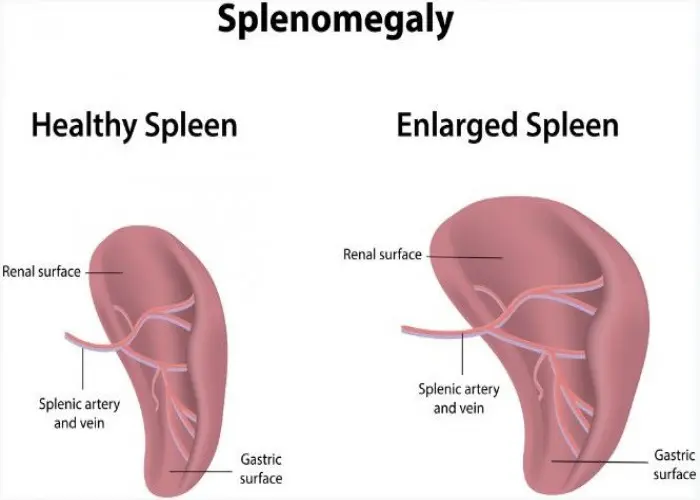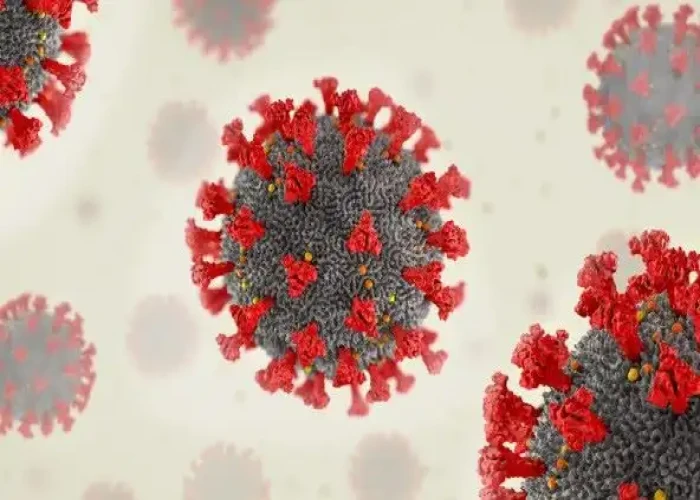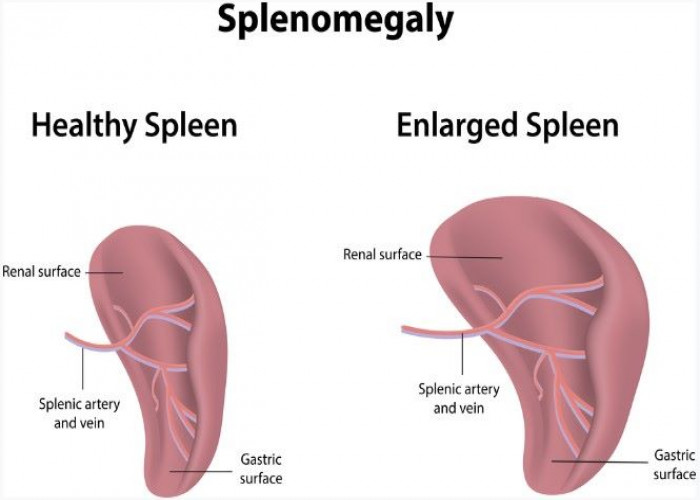 Welcome
Welcome
“May all be happy, may all be healed, may all be at peace and may no one ever suffer."
Enlarged spleen (splenomegaly)

An enlarged spleen, also known as splenomegaly, is a condition in which the spleen is larger than normal. It can be caused by a variety of factors, including infections, liver disease, blood cancers, and immune disorders.
When the spleen is enlarged, it can cause a variety of symptoms, such as pain in the left upper abdomen, fatigue, easy bruising or bleeding, and anemia (low red blood cell count). An enlarged spleen can also increase the risk of infections, as the spleen plays a role in filtering bacteria and other foreign substances from the blood.
Treatment for an enlarged spleen depends on the underlying cause. In some cases, treatment may not be necessary if there are no symptoms or complications. However, if the spleen is causing symptoms or increasing the risk of complications, treatment may be recommended. This can include medications to treat infections, blood disorders, or immune disorders, or in some cases, surgery to remove the spleen.
It is important to seek medical evaluation if you are experiencing symptoms of an enlarged spleen, as the condition can have serious complications. Your healthcare provider will perform a physical exam and may order blood tests, imaging studies, or other diagnostic tests to determine the underlying cause of the enlargement and to guide appropriate treatment.
Research Papers
Disease Signs and Symptoms
- Low red blood cells (Anemia)
- Frequent infections
- Upper abdomen pain
Disease Causes
Enlarged spleen (splenomegaly)
A number of infections and diseases can cause an enlarged spleen. The enlargement might be temporary, depending on treatment. Contributing factors include:
- Viral infections, such as mononucleosis
- Bacterial infections, such as syphilis or an infection of your heart's inner lining (endocarditis)
- Parasitic infections, such as malaria
- Cirrhosis and other diseases affecting the liver
- Various types of hemolytic anemia — a condition characterized by early destruction of red blood cells
- Blood cancers, such as leukemia and myeloproliferative neoplasms, and lymphomas, such as Hodgkin's disease
- Metabolic disorders, such as Gaucher disease and Niemann-Pick disease
- Pressure on the veins in the spleen or liver or a blood clot in these veins
- Autoimmune conditions, such as lupus or sarcoidosis
How the spleen works
Your spleen is tucked below your rib cage next to your stomach on the left side of your belly. Its size generally relates to your height, weight and sex.
This soft, spongy organ performs several critical jobs, such as:
- Filtering out and destroying old, damaged blood cells
- Preventing infection by producing white blood cells (lymphocytes) and acting as a first line of defense against disease-causing organisms
- Storing red blood cells and platelets, which help your blood clot
An enlarged spleen affects each of these jobs. When it's enlarged, your spleen may not function as usual.
Disease Prevents
Disease Treatments
Treatment for an enlarged spleen focuses on the what's causing it. For example, if you have a bacterial infection, treatment will include antibiotics.
Watchful waiting
If you have an enlarged spleen but don't have symptoms and the cause can't be found, your doctor might suggest watchful waiting. You see your doctor for reevaluation in 6 to 12 months or sooner if you develop symptoms.
Spleen removal surgery
If an enlarged spleen causes serious complications or the cause can't be identified or treated, surgery to remove your spleen (splenectomy) might be an option. In chronic or critical cases, surgery might offer the best hope for recovery.
Elective spleen removal requires careful consideration. You can live an active life without a spleen, but you're more likely to get serious or even life-threatening infections after spleen removal.
Reducing infection risk after surgery
After spleen removal, certain steps can help reduce your risk of infection, including:
- A series of vaccinations before and after the splenectomy. These include the pneumococcal (Pneumovax 23), meningococcal and haemophilus influenzae type b (Hib) vaccines, which protect against pneumonia, meningitis and infections of the blood, bones and joints. You'll also need the pneumococcal vaccine every five years after surgery.
- Taking penicillin or other antibiotics after your surgery and anytime you or your doctor suspects the possibility of an infection.
- Calling your doctor at the first sign of a fever, which could indicate an infection.
- Avoiding travel to parts of the world where certain diseases, such as malaria, are common.
Disease Diagnoses
Disease Allopathic Generics
Disease Ayurvedic Generics
Disease Homeopathic Generics
Disease yoga
Enlarged spleen (splenomegaly) and Learn More about Diseases

Severe acute respiratory syndrome (SARS)

Transient ischemic attack (TIA)

Muscle strains

Boils (Absces or Carbuncles)

Stevens-Johnson syndrome

Male infertility

Urinary tract infection (UTI)

Pinched nerve
enlarged spleen, splenomegaly, বর্ধিত প্লীহা, স্প্লেনোমেগালি
To be happy, beautiful, healthy, wealthy, hale and long-lived stay with DM3S.
